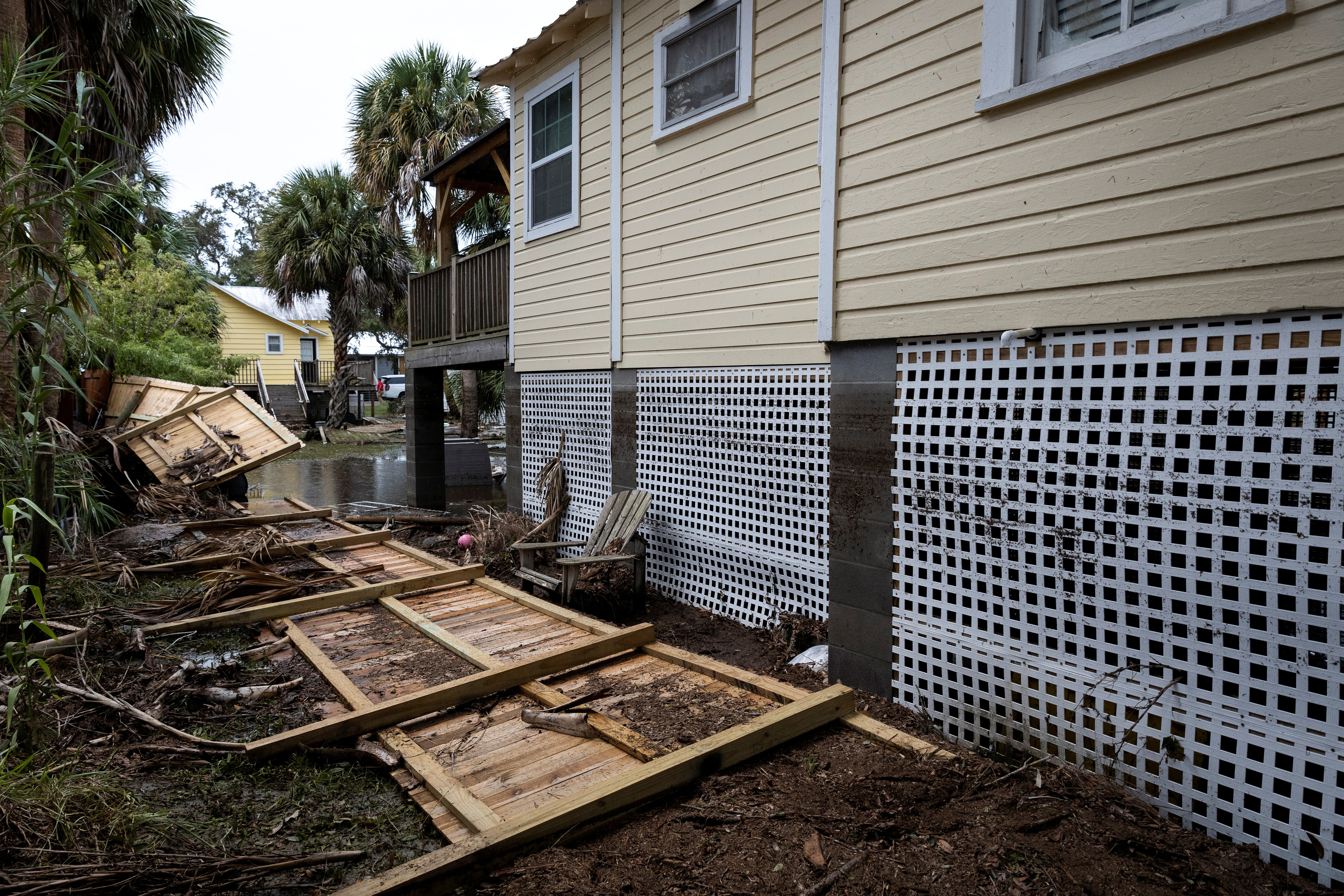This week, Dr. Anthony Fauci, the former director of the National Institute of Allergy and Infectious Diseases, gave an interview to the BBC in which he declared that older people, the ill and disabled “will fall by the wayside” in the current surge of COVID-19. Fauci was not warning about what would happen unless urgent action was taken. Rather, he was seeking to justify the Biden administration’s policy of inaction and cover-up in the face of a new surge of the disease.

Loading Tweet …
Fauci’s comments reiterate the declaration in January 2022 by Centers for Disease Control and Prevention (CDC) Director Rochelle Walensky that the fact that COVID-19 predominantly kills people who are “unwell to begin with” is “encouraging news.” The statements by both Walensky and Fauci implied that the lives of chronically ill and disabled people were less valuable than healthy ones.
Three years ago, Fauci would hardly have imagined that he could make such statements. In accepting a policy of simply letting the vulnerable die, he has suffered a complete moral collapse. He is capitulating to the fascist ideologues who have long advocated allowing the coronavirus to spread without limit.
More significant than his own personal evolution, however, is what his statements say about the Biden administration, which has adopted an unstated but nonetheless deliberate policy of social murder, targeting older, chronically ill, and disabled people. It amounts to a form of homicidal eugenics, reminiscent of the Nazi regime’s policy of murdering handicapped people.
Fauci was speaking under conditions in which wastewater data indicates that COVID-19 cases have more than tripled over the course of the past two months, while COVID-19 hospital admissions have more than doubled. This is the first surge after the Biden administration stopped counting COVID-19 cases on May 11 with the aim of reducing public knowledge of the spread of the disease, leaving the United States essentially flying blind.
Asked, “How serious could it get again,” Fauci sought to downplay the dangers by asserting that he believes, but does not know for certain, that the present surge of COVID-19 will see fewer hospitalizations and deaths than in the past.
Fauci claimed, “96 percent or more of the population has some degree of immunity, either through prior infection or through vaccines, or both.” He continued:
I doubt very seriously whether you’re going to see the hospital and death surge that we’ve seen in the past, even if we get a surge of infections, because there’s enough fundamental community-level protection, that even though you’ll find the vulnerable will fall by the wayside. They’ll get infected, they’ll get hospitalized and some will die. It’s not going to be the tsunami of cases that we’ve seen.
Who are these “vulnerable” people, who will be left to die on the side of the road?
In the United States, approximately 45.4 percent of the population are at heightened risk of complications from COVID-19 due to having at least one of six comorbidities, including cardiovascular disease, chronic obstructive pulmonary disease (COPD), diabetes, asthma, hypertension and/or cancer. When factors exacerbating the risk from COVID-19, like autoimmune diseases, obesity, and organ transplant, and being over 65, are added, the list of groups that will be left to “fall by the wayside” grows to significantly more than half of the population and approaches two-thirds.
Fauci, who had for years been a target of fascist attacks for having advocated during the Trump administration for measures to mitigate the spread of COVID-19, has embraced the doctrine of “herd immunity.” This is the conception advocated by Trump in 2020 that if enough people get COVID-19, the virus will go away, and that the deaths of older people, the ill, and the disabled are an acceptable cost of preserving the profit interests of major corporations.
The greatest argument against the proponents of “herd immunity” is the actual experience of the COVID-19 pandemic, which confirms the warnings made by the World Health Organization (WHO) in October 2020 that “herd immunity” is not a scientifically viable response to the COVID-19 pandemic.
“Herd immunity is achieved by protecting people from a virus, not by exposing them to it,” WHO Director-General Tedros Adhanom Ghebreyesus said at that time. “Never in the history of public health has herd immunity been used as a strategy for responding to an outbreak, let alone a pandemic. It is scientifically and ethically problematic.”
To bolster his claim, the WHO director raised the prospect—at that time hypothetical—that people might become ill with COVID-19 twice, as well as mounting reports of what he said is “now being described as Long COVID.”
Three years after these statements were made, we know that reinfection with COVID-19 is not a notional possibility, but the rule. People in frontline positions, including teachers and health care workers, have reported being infected three, four, or five times.
Each bout with COVID-19 progressively damages major organ systems, including the immune system, brain, and circulatory system. In other words, by allowing COVID-19 to circulate freely, the population that Fauci describes as vulnerable is constantly increasing.
Finally, when Dr. Ghebreyesus made these warnings, the ability of COVID-19 to mutate to overcome existing immunity was largely hypothetical. Over the next three years, a sea of new COVID-19 variants have shown that no amount of “population immunity” will prevent significant new surges of COVID-19.
Advocates of mass infection have repeatedly increased the share of the population that must be infected to allow the disease to return to “manageable” levels. First it was 50 percent, then it was 70 percent, then 80 percent, then 90 percent. Now, with Fauci declaring that virtually the entire population—96 percent—has “immunity” to COVID-19, schools in the US are being shut down not as a preventive precaution, but because too many staff are ill to keep them open.
Shamefully, leading WHO officials have repudiated their own condemnation of governments’ mass infection policy, ending its COVID-19 public health emergency declaration in May, and this week shutting down its weekly COVID-19 briefings.
The ruling class’s strategy of a “perpetual pandemic” has produced a disaster. In the United States alone, 1.1 million people are dead, and tens of millions more have had their health significantly damaged by Long COVID. Now, COVID-19 cases and hospitalizations are surging, even before the new, highly-contagious B.1.1.7 variant, the most highly mutated version of the disease to date, has begun to widely circulate.
For more than a year, the population has been told by the Biden administration, world governments and the media that the pandemic is over, that they can take off their masks and stop worrying about being infected. It will come as a shock that now, amidst a new surge in infections, they are being told that they should simply accept that they or their loved ones could get severely ill or die.
But this is the logic of the ruling-class response to the pandemic, which is based on the subordination of public health to profit.
This policy of mass death and perpetual infection must be stopped! In every country, the demand must be raised for emergency measures to halt the spread of COVID-19, and to reject the position that it is endemic.
Health care professionals and scientists have a responsibility to speak out against this catastrophic policy. The population, which has been disarmed by the relentless propaganda of the ruling class, must be informed about the ongoing threat and mobilized to fight for a policy of global elimination and eradication.
I want to participate in the work of the Global Workers’ Inquest










